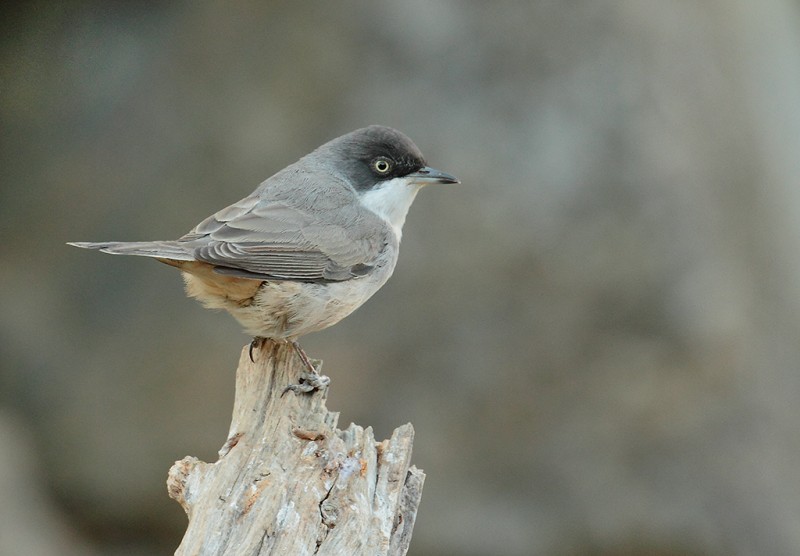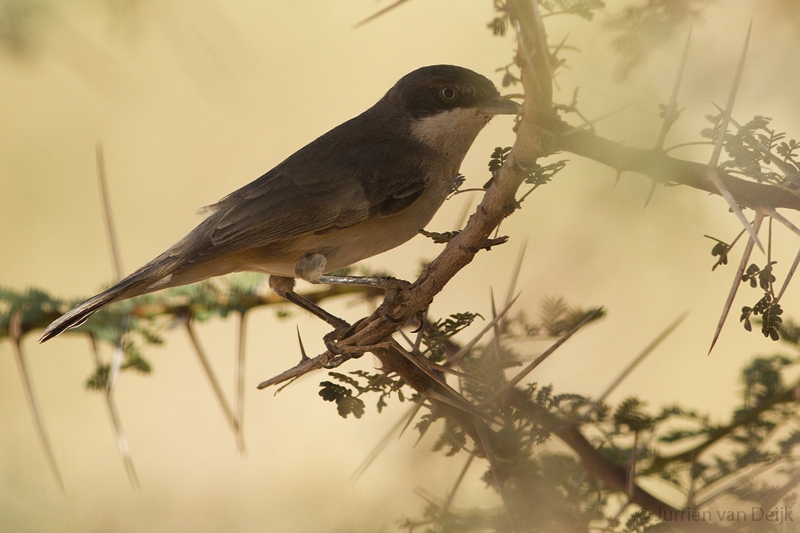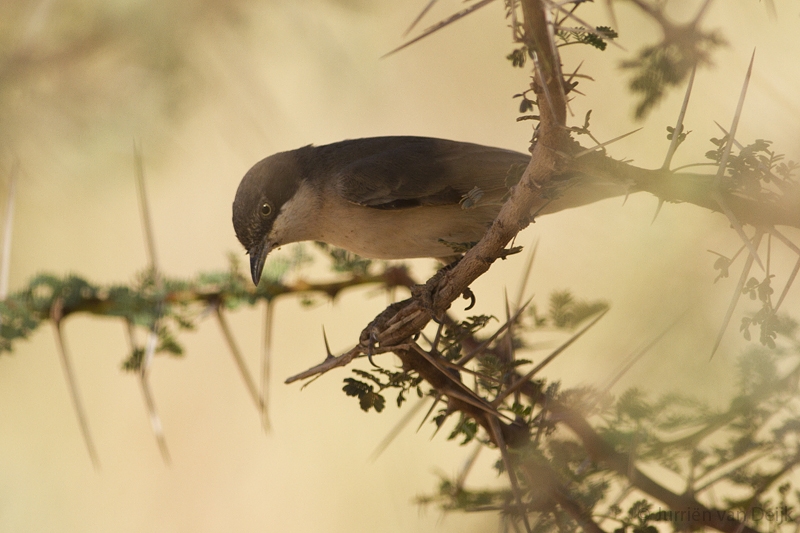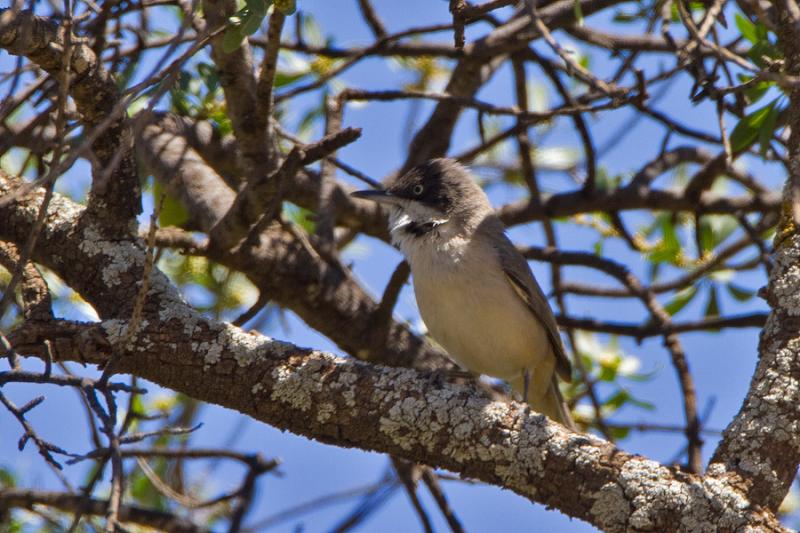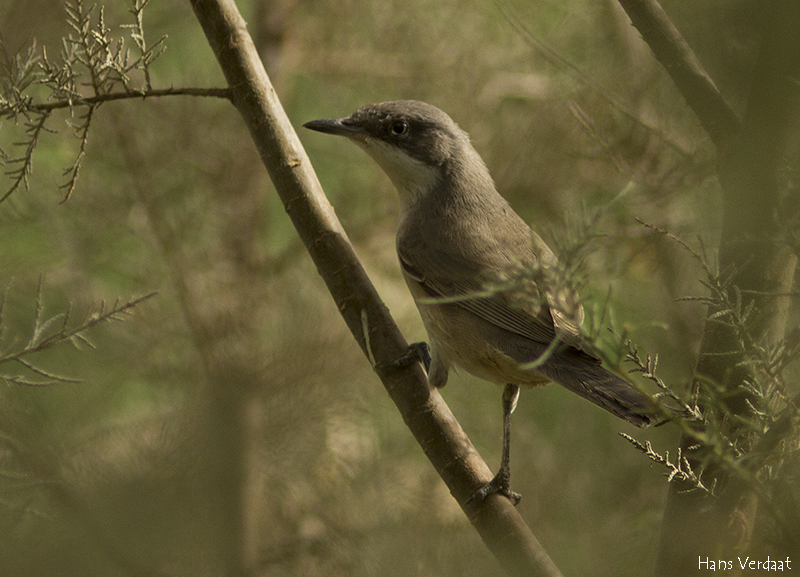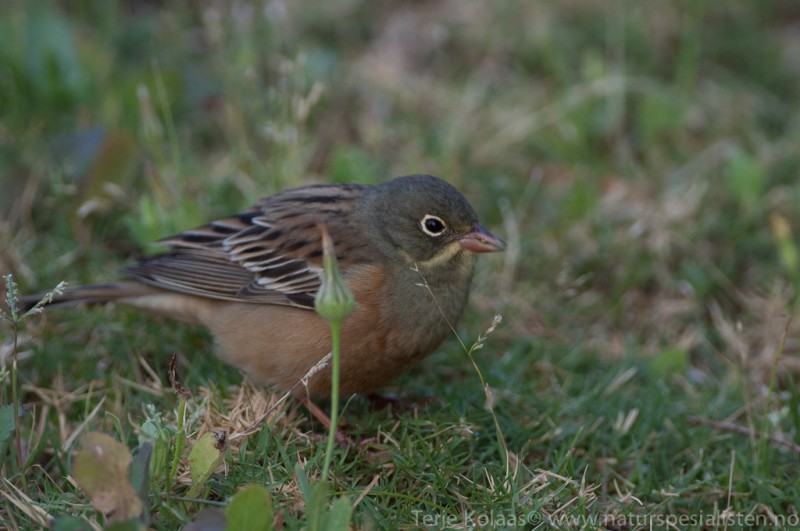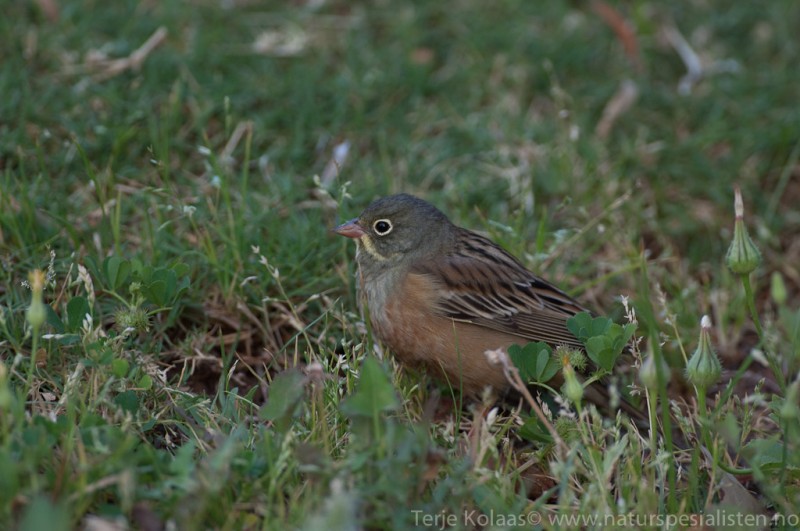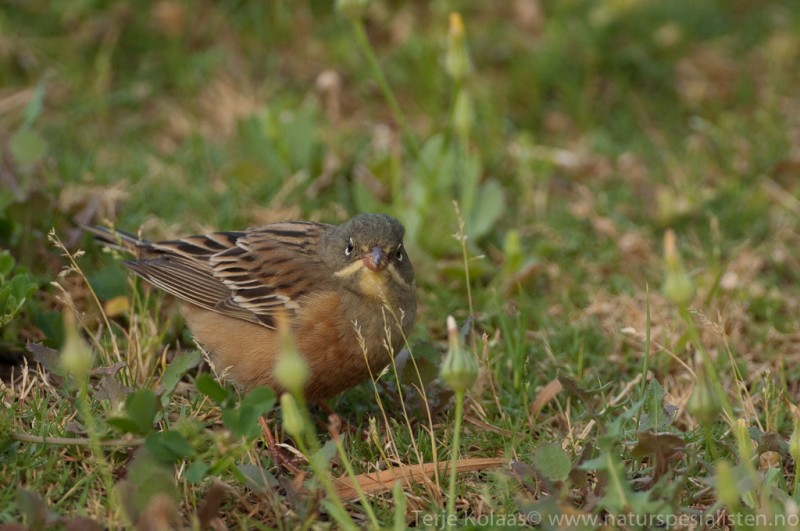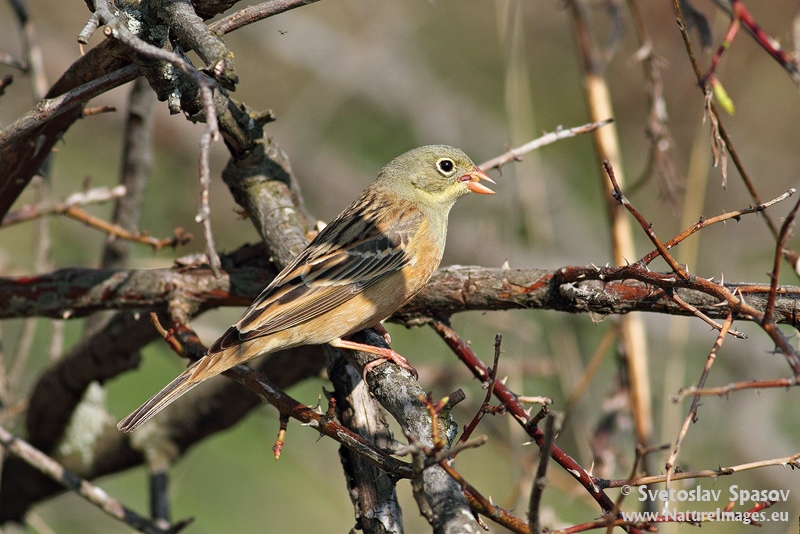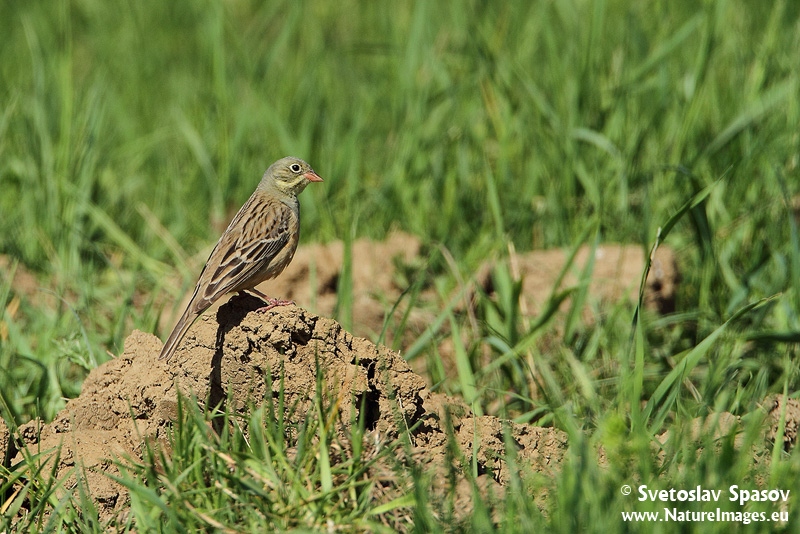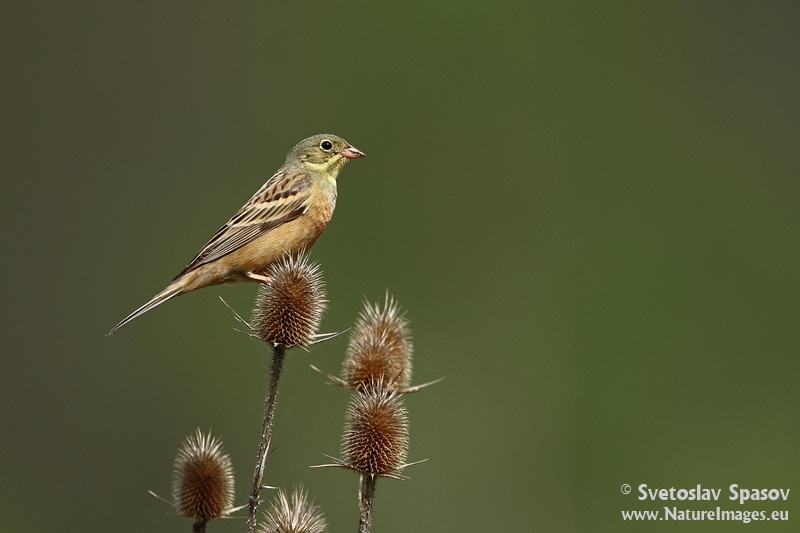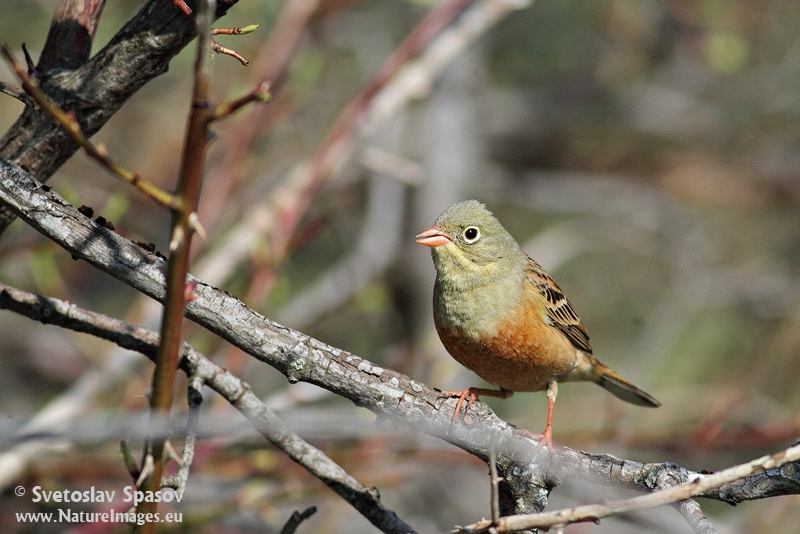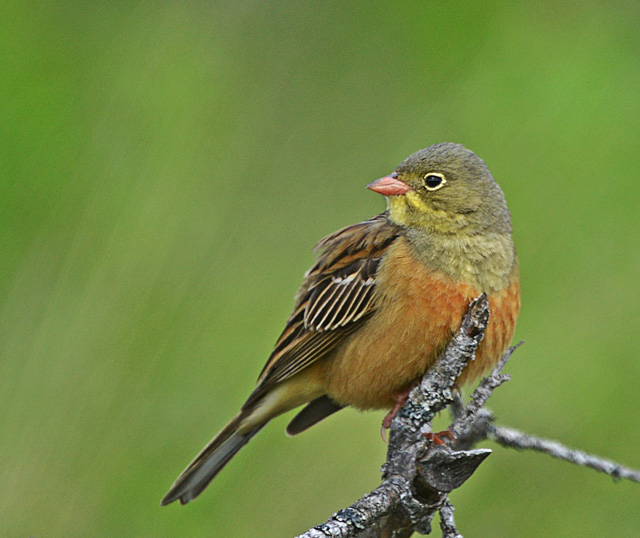Western Orphean Warbler (Curruca hortensis)
Ortolan Bunting (Emberiza hortulana)
Large Sylvia with dark hood and pale iris (adult birds). Lacks red orbital ring of Sardinian Warbler. Tertials and coverts without pale fringes. Very similar to Eastern Orphean Warbler (S. crassirostris), but generally the distribution of the two do not overlap. Typical birds also show some differences in plumage like; no dark centres to under tail coverts and warm buff underparts, flanks and vent (variable). The border between the dark hood and grey neck is more diffuse, the back is browner and the bill slightly shorter. Young vagrants with poorly developed characters may be inseparable from S. crassirostris by appearance. Both species differ from Lesser Whitethroat by; stronger bill, no white crescents around eye and darker upper tail. Movements less agile than smaller congeners.
Sound:Alarm call a short and sharp "tek" recalling Blackcap, often given in series. Also a dry, rasping "turrrr". Both calls are more or less identical to S. crassirostris. Song much more different from latter, but timbre of fluting sounds is similar, recalling that of Blue Rock Thrush. Overall the song is simpler than S. crassirostris, with shorter phrases, longer pauses and a more restricted register. Motifs consists largely of pleasant fluting, often dominated by alternation between two notes, and are often repeated with small variations.
Song:
Distribution:
Xeno-canto: map
Ecology:Birdlife ecology
Links:
Observation.org Latest observations
Image search Flickr NB! May give other species
CCMedium sized bunting, resembling a compact Yellowhammer in shape. Head green with yellow markings and underparts orange-brown. Distinct and characteristic, yellow eye-ring and earth-brown (not rufous) rump in all plumages. Female like male, but duller coloured, with streaked head and chest.
Sound:Distinct bunting-like timbre with very prominent harmonics. Song simple, but varies from region to region. Sometimes structurally similar to yellowhammer, but slower, more melancholic, and with more clearly audible harmonics f.ex. "tze-ti tze-ti tze-ti tweeeee". Beginning with repeated alternating notes (tze-ti) and ending on a lower note fading out with a rising pitch. Sometimes without the ending note (like yellowhammer). Calls: a vaguely House Sparrow-like "chepp", with a ringing quality, and a sharper cut-off "zeep".
Song:
Distribution:
Xeno-canto: map
Ecology:Birdlife ecology
Links:
Observation.org Latest observations
Image search Flickr NB! May give other species
CC
 English
English Albanian
Albanian
 Armenian
Armenian
 Bulgarian
Bulgarian
 Catalan
Catalan
 Croatian
Croatian
 Czech
Czech
 Danish
Danish
 Dutch
Dutch
 Finnish
Finnish
 French
French
 Georgian
Georgian
 German
German
 Greek
Greek
 Hungarian
Hungarian
 Italian
Italian
 Latvian
Latvian
 Lithuanian
Lithuanian
 Macedonian
Macedonian
 Norwegian
Norwegian
 Polish
Polish
 Portuguese
Portuguese
 Romanian
Romanian
 Russian
Russian
 Sami : Lule sami
Sami : Lule sami
 Sami : North sami
Sami : North sami
 Sami : South sami
Sami : South sami
 Scientific names
Scientific names
 Serbian
Serbian
 Spanish
Spanish
 Swedish
Swedish
 Ukrainian
Ukrainian


